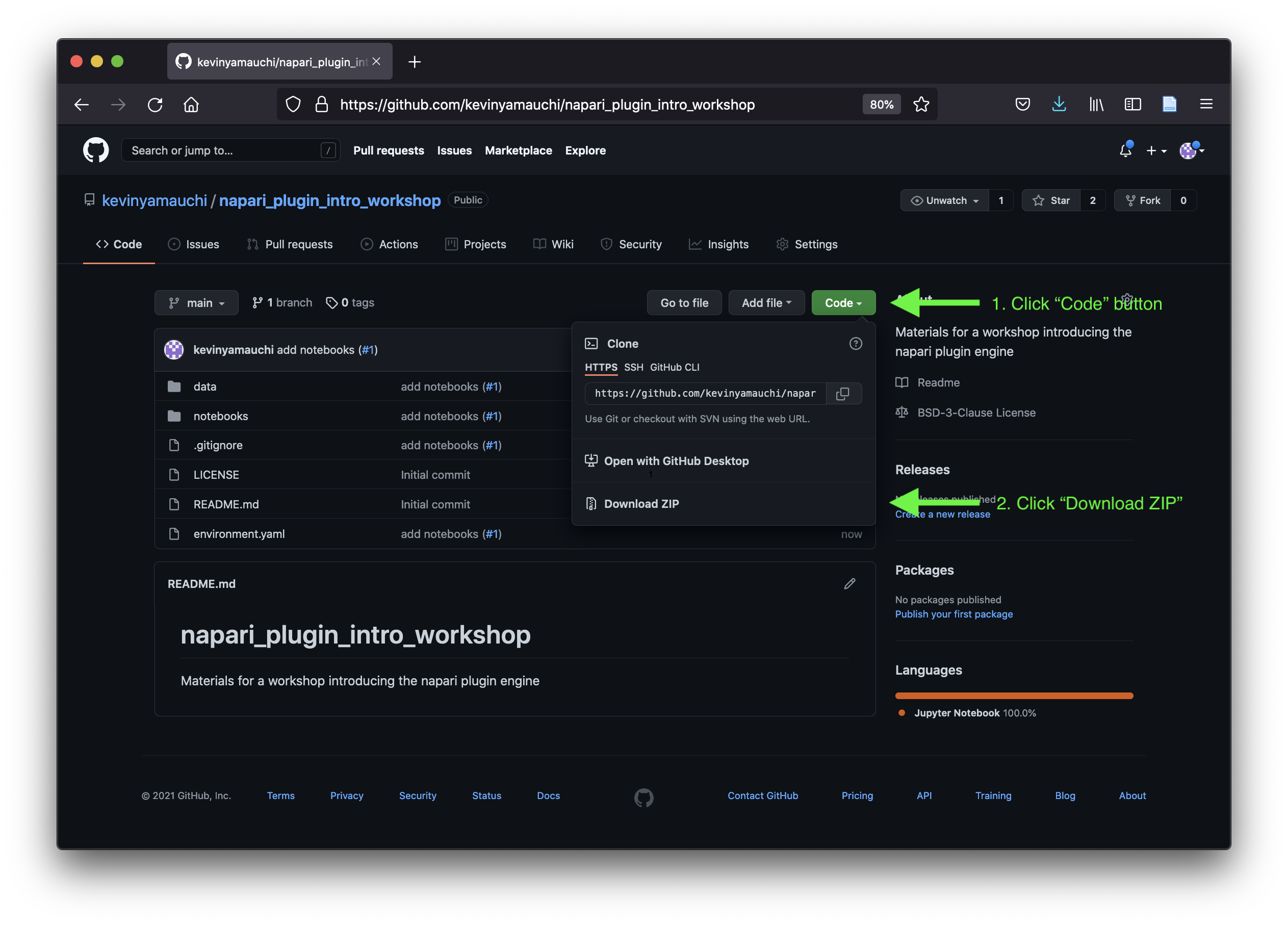The complete, executed notebooks are hosted in the materials on this website. We encourage you
to follow along with the workshop in a fresh, blank notebook. However, if you
would like to be able to run the completed notebooks locally, you can download them
and launch the jupyter lab application using the instructions below.
Downloading the notebooks¶
There are two ways to download the notebooks; follow the instructions below for either downloading a .zip file (recommended for beginners) or cloning via git.
Downloading a .zip file¶
To download the notebooks as a .zip file, do the following:
- Click the GitHub logo at the top of this page or navigate your web browser to the workshop’s GitHub repository (for this
template, this is https://
github .com /napari /napari -workshop -template) - Click the green (or blue) “Code” button to open the download menu and then
“Download ZIP”

- Choose the location you would like to download the .zip into.
- Open your file browser and double click on the .zip file to uncompress it.
- You have downloaded the notebooks! Proceed to the “Launching jupyter notebook” section.
Cloning via git¶
To clone the repository containing the tutorial materials to your computer, open your Terminal and navigate to the folder where you will download the course materials into. We recommend cloning the materials into your Documents folder, but you can choose another suitable location.
cd ~/DocumentsThen, clone the repository. This will download all of the files necessary for this tutorial.
git clone https://github.com/napari/napari-workshop-template.gitInstall the additional jupytext dependency¶
Because the notebooks were converted to MyST Markdown files (with a .md extension), to better visualize on GitHub and provide a nice rendered look on the web, you need to install one additional dependency to run them locally.
conda install jupytext jupyterlab-mystLaunch the jupyter lab application¶
Navigate to the notebooks subdirectory of the
napari-workshop-template directory you just cloned or downloaded.
cd <path to napari-workshop-template>/notebooksRemember to activate the napari-workshop conda environment if you haven’t already.
conda activate napari-workshopTo start the Jupyter application, enter:
jupyter labThe Jupyter interface will open in a browser window and you will see the notebooks in the file browser on the left.